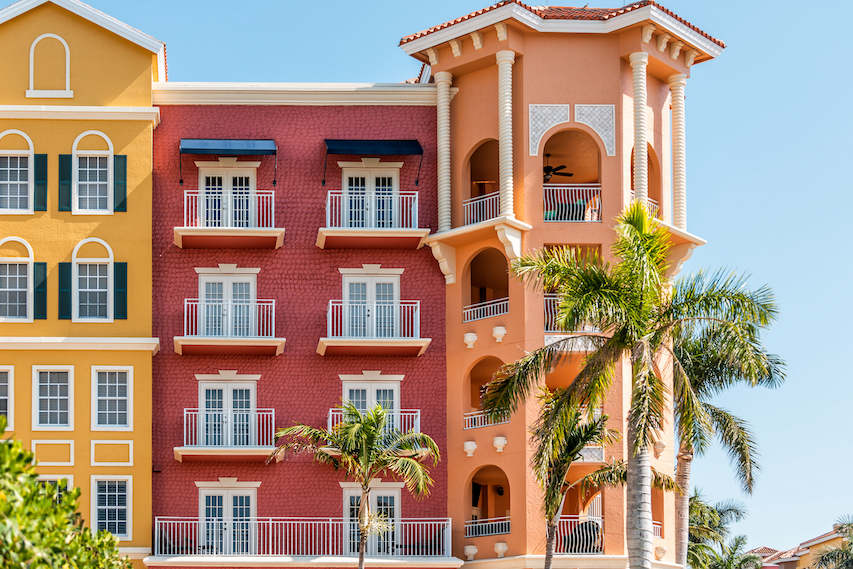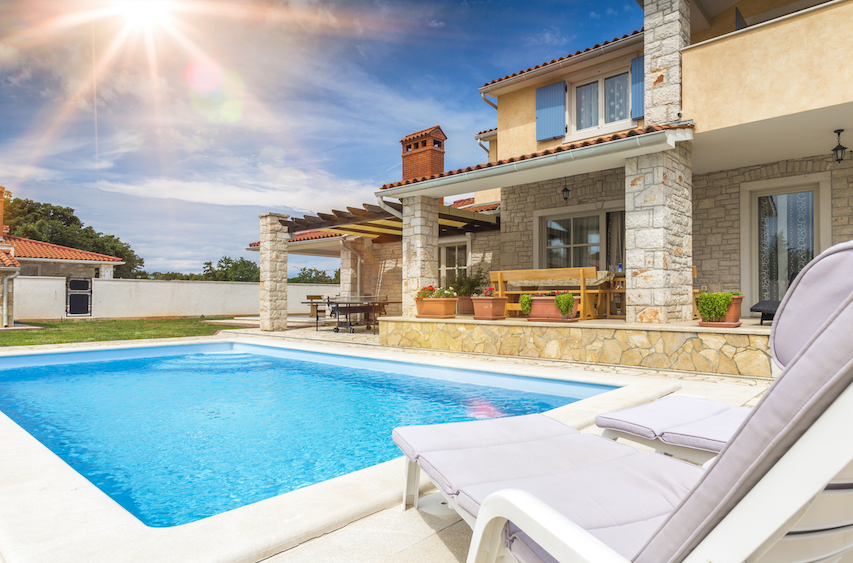Spain Real Estate market is a lucrative field for investment as well as a wonderful place to relocate if you are seeking a laid-back lifestyle and lower cost of living. If you are planning to make a move in this promising market, I prepared an express-guide for buying a property in Spain. Read up!
Market Overview
The credit crisis of 2008 caused Spain’s property prices to plummet. The housing market took a massive hit, with house prices dropping by almost 30%. The stagnating economy, slow recovery and political hindered the price recovery. The market starts to recover only in the beginning of 2014. Due to the strong economic growth in the last couple of years, a total of 539,970 properties were sold in 2018 – demonstrating 12% growth from previous years and a steady upward trend. Foreign buyers significantly contribute to this growth. They account for almost half of the transactions carried out last year.

According to a report by BBVA, house prices in Spain cumulatively raised by 5% in 2018. Similarly, rental prices are snowballing, reaching double-digit rates in specific regions. The situation on the market is generally favorable for investors; the economy is getting steam. In the same time, in many regions prices are yet to recover to pre-crisis levels, and now is a great time to get a stake in the Spanish property market. Property investors can benefit from the holiday rentals in Palma, or long-term renting for young professionals in Barcelona and Madrid, house flipping is also possible, but you need to account for the capital gain tax, which we are going to discuss later in the article.
Renting in Spain
Rental properties are in high demand in some parts of Spain. Rent prices in Spanish major tourist cities have increased by almost 15% over the last year. Many real estate agents attribute this sudden climb to the growing popularity of short-term holiday rentals through websites like Airbnb.
This trend is invoking concern among Spanish political parties and citizen groups. Local governments are actively exploring legislative initiatives to curb this trend. Madrid is set to introduce new rules for the holiday rental sector in 2019. There is various restriction already in place in various regions of Spain, such as holiday tax in Malaga. Nevertheless, there is still a potential for growth in this sector and holiday rental in the right location can be a very sound property investment. If you are after this kind of a deal, look into Costa Blanca and Seville.

The homeownership rate is around 80% in Spain; this trend is deeply embedded in traditions and culture. Nevertheless, the majority of young professionals and most of the expats prefer renting over buying. The transaction costs and capital gain tax offset the potential benefits of buying property in the short-term. Buying property is financially prudent if you are planning to relocate, or ready for the long-term investment.
Foreign Investors
Foreigners are allowed to acquire property in Spain. There are minimal restrictions on buying property in Spain, regardless if it’s residential, commercial, retail or land.
Spain strongly encourages investment by foreign investments and each year ease the restrictions and regulations. In order, to get started the investment process in Spain you will need to obtain the NIE number. An NIE number is required for all foreigners who wish to conduct legal or tax activity in Spain. The Spanish NIE number function as identification and tax number. It is used in all financial transactions that involve the Spanish tax office
You can obtain an NIE number by visiting a police station with your national passport. The whole process usually takes a day for EU citizens, while it can take up to a few weeks for others.

Golden Visa
Spain offers exceptional benefits for the property owners, such as ‘golden visa’ program. This is a long-term investor’s visa. If you invest €500,000 or more in Spanish Real Estate, acquiring one or more properties, you are automatically eligible to apply for a residency visa. This is not the same as work permit, so you won’t be allowed to work in the country, but it will allow you to reside in Spain. This program is frequently used for retires and holiday rental buyers.
Real Estate Agents
Agents are usually paid by the seller. Therefore, there is a significant advantage for buyers to use their services. Agents can provide detailed information about the local market situation, point out better properties and assist with tax and legal matters.
Many of the agents are English-speaking and accustomed to dealing with foreign investors. However, you should still do your research and double-check your agents. Keep in mind that you can choose your mortgage provider, bank or notary- services suggested by the agents are usually no the cheapest.
Debts
According to the Spanish laws, when the property is sold all the corresponding debts or obligations are transferred to a new owner. Commonly, those debts include:
- Mortgage payments;
- Payments to homeowners associations;
- Property tax.
Thus, it is crucial to check that there are no debts associated with the property when it is sold. Alternatively, you should make sure that the terms of contract cover any liabilities.

Fees and Charges
The total cost of the purchase may vary from region to region. Many autonomous communities and municipalities impose their own taxes and fees. In most cases, all costs associated with the acquisition are paid by the buyer. Some of them may be negotiable, such as agent fee and costs of the legal services. Generally, the cost breakdown looks like this:
- Legal fees 1–2% of the property value
- VAT at 10% for new properties or property transfer tax 6–10% for existing properties
- Notary costs, land and title registration fee 1–2.5%;
The Real Estate agent fee usually comprise 3% of the property value and paid by the seller.
Capital Gains Tax
Capital gains tax is the main roadblock for short-term investment and house flipping. It is paid on the difference between the purchase price and the sale price; you are obligated to share the profit from selling your home. The capital gains tax can be from 19% to 23%. For the earnings of €6,000 and below the tax is 19%, €6,000-€50,000- 21%, and for anything above €50,000 – 23%.
For example, if you purchase a property for €300,000 and sell it afterward for €400,000, you would have to pay capital gains tax on €100,000. Under the three-tier system, the tax would be 23% and add up to €23,000.
There are several deductions and tax writes off you can utilize to reduce the costs. You can claim a deduction on the capital gains tax due to inflation; if you are purchasing a second property; or if you are over 65 and resided in the property for more than three years.
This tax framework is different from most European jurisdictions, where your prolonged residential status usually relieves you from the capital gains tax. In contrast, in Spain, you need to pay up no matter how long you resided on the property or in the country.
Buying a Spanish Property
The process of purchasing property in Spain consists of the following steps. Initially, the buyer is making an offer through the seller’s real estate agent. After the offer is accepted the parties sign a preliminary contract or contrato privado de compravento. Together with the contract, buyers typically pay the deposit of 10% of the price. After that buyer finalizes the mortgage with the mortgage provider. Mortgage negotiations should start before the signing of the preliminary contract to address all the requirements. After that the contract of sale- escritura de compravento is signed under the supervision of the notary, which is not required but highly recommended. After that, the buyer is obligated to pay the full sale price and other costs and taxes.

Legal Essentials
The hidden defects of the property are the responsibility of the seller. Nevertheless, getting restitution is a long and exhausting process. On the other hand, the buyer is responsible for ensuring that all the taxes and costs are paid and the property is registered. The notary can register the property for you for a small fee.
Mortgages
The crisis of 2008 triggered the profound reform of Spanish banks according to the recommendation of the IMF. The reformed significantly strengthened the oversight of the industry, increased transparency and accountability, while reduced the number of lenders. Consequently, many banks started to lend less with strict terms and higher rates.
Mortgage providers also will not grant you a mortgage if you haven’t signed the preliminary agreement and got a stake in the property. Hence, you should include a clause in the agreement allowing you to opt-out of the agreement in case you can’t get a mortgage. You can acquire a mortgage in a Spanish bank if you are a foreigner. However, banks usually offer smaller loans to foreign buyers. Residents of Spain usually can count on the mortgage that covers 80% of the property value, while non-residents can borrow only up to 60-70% of the property value.
Mariia Kislitsyna
Mariia serves as editor-in-chief and writer for the Rentberry and Landlord Tips blogs. She covers topics such as landlord-tenant laws, tips and advice for renters, investment opportunities in various cities, and more. She holds a master’s degree in strategic management, and you can find her articles in such publications as Yahoo! Finance, Forbes, Benzinga, and RealEstateAgent.